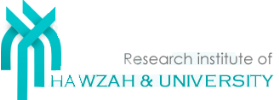
The continuity of economic life is not possible in the absence of a capital market. Given the Muslims’ reliance on Islamic teachings, the conventional capital markets and its instruments are not of use in Islamic countries. The Islamic capital market is a part of the Islamic economic system. The instruments of an Islamic capital market are also derived from the Islamic principles and teachings in accordance with the values governing the behavior of Muslims in order to facilitate the exchanges and communications in social life. Bonds are developed and introduced to sponsor a wide context of Islamic capital market (interests and services) and are also effective in diversifying exchanges in other contexts. The proper use of this instrument at the national and international level would be a great opportunity and its ignorance would be a hazardous threat. The bonds transfer interests (not the same property). In other words, the owner can transfer interests or services, without transferring the same property, within a specified period by issuing the sukuk (i.e., "securities of equal denomination representing individual ownership interests in a portfolio of eligible existing or future assets) in order to provide the required liquidity. The present study focuses on the bonds and their economic efficiency from a jurisprudential viewpoint.

Your Comment :